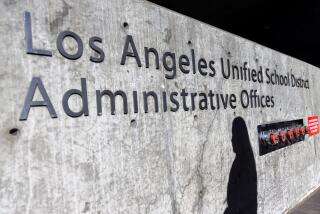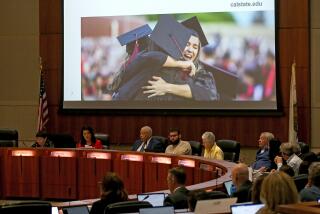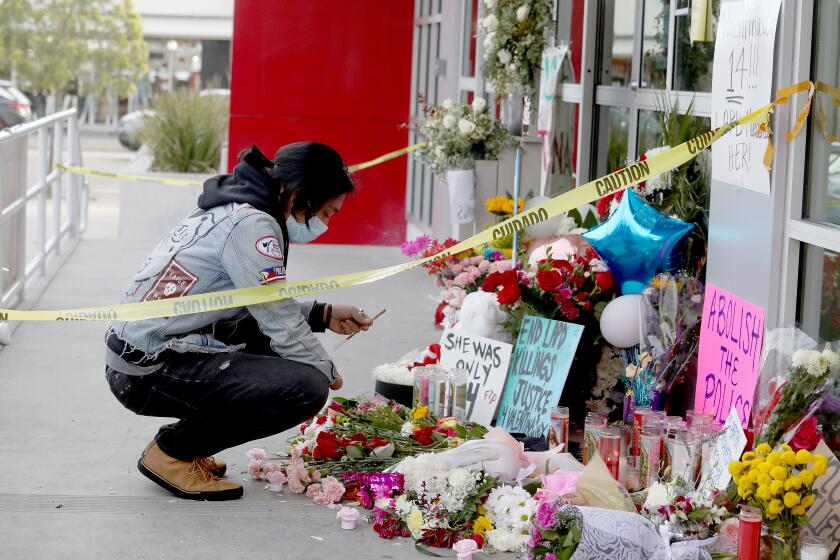USC to pay $1.1 billion to settle decades of sex abuse claims against gynecologist
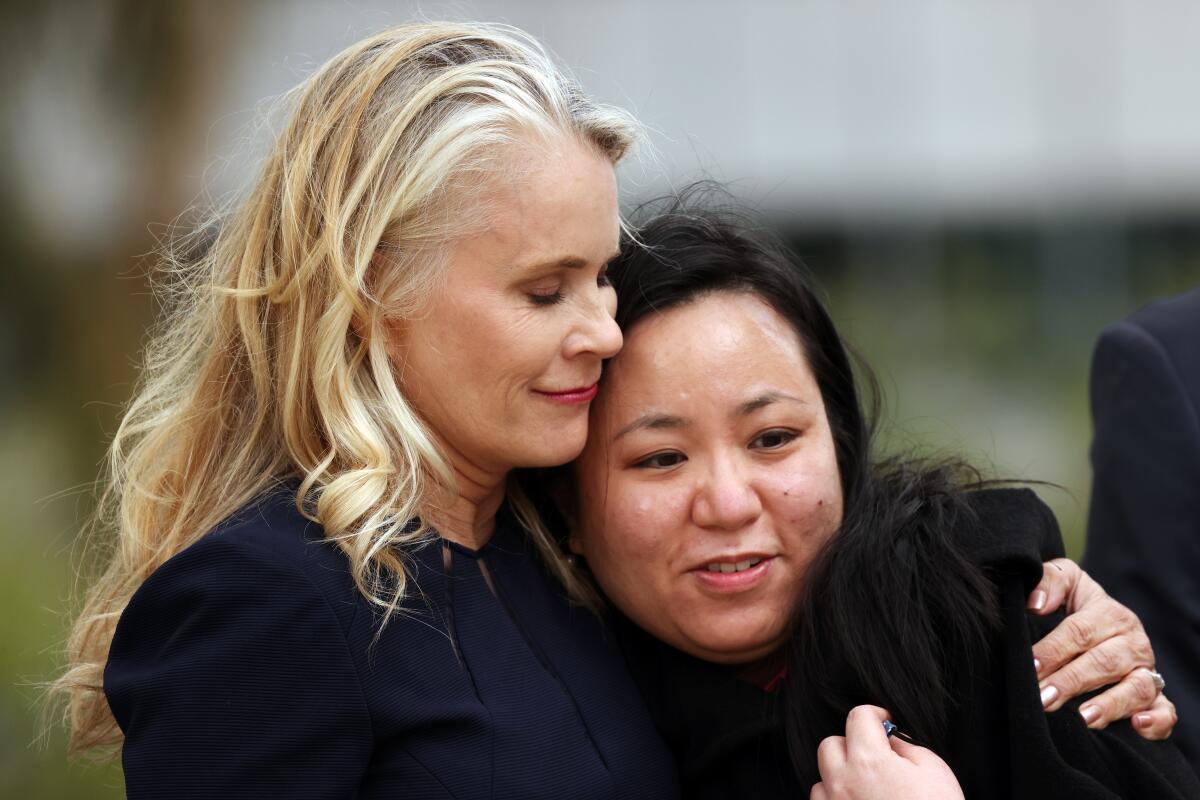
USC has agreed to pay more than $1.1 billion to former patients of campus gynecologist George Tyndall, the largest sex abuse payout in higher education history.
The huge sum was revealed Thursday in Los Angeles Superior Court as lawyers for a final group of 710 women suing the university told a judge they had settled their claims for $852 million.
USC previously agreed to pay thousands of other alumnae and students $215 million in a 2018 federal class-action settlement. A group of about 50 other cases were settled for an amount that has not been made public.
The sole full-time gynecologist at the student health clinic from 1989 until 2016, Tyndall was accused of preying on a generation of USC women. After The Times exposed his troubled history at the university three years ago, the 74-year-old was stripped of his medical license and arrested. He has pleaded not guilty to dozens of sexual assault charges and is awaiting trial.

USC President Carol Folt, who was appointed in 2019 to reform the university in the wake of the scandal, said in a letter to the school community that she hoped the settlement “provides some relief to the women abused by George Tyndall.”
“I am deeply sorry for the pain experienced by the women who trusted him as a physician and appreciate the courage of all who came forward,” she wrote.
The USC settlement dwarfs recent payouts in other university scandals. Michigan State University paid $500 million in connection with Larry Nasser’s sexual abuse of gymnasts and others, while Penn State settled claims related to Jerry Sandusky’s sexual abuse for more than $109 million.
Two mediators, Jeffrey Krivis and Superior Court Judge Daniel Buckley, who reviewed the evidence recommended the $852-million figure. USC’s Board of Trustees unanimously approved the amount, according to chair Rick Caruso.
The total $1.1-billion price tag reflected several factors. A 2019 state law, backed by former patients and their lawyers, temporarily lifted the statute of limitations for certain sexual assault lawsuits, allowing women to sue over appointments with Tyndall stretching back to the 1990s.
The sheer number of potential victims, some 17,000 women treated by Tyndall over three decades, also made a massive settlement inevitable.
University general counsel Beong-Soo Kim called the vast number of accusers involved “the primary factor” in the amount of the settlement.
“If you look at the number from a per plaintiff basis, I think the math is very comparable with the MSU settlement,” Kim said.
Plaintiffs’ attorneys were also armed with evidence that university officials knew for decades of problems with the physician and failed to remove him. Internal personnel files detailed how complaints about Tyndall were mishandled or ignored again and again, lapses that led the U.S. Department of Education to sanction the university last year.
“Institutions don’t pay out a billion dollars because nothing happened or they’re not responsible,” said John Manly, whose Orange County law firm was co-lead counsel for the women suing the university. “We were able to prove in court that USC knew for the better part of 30 years that Tyndall was assaulting patients.”
For nearly 30 years, the University of Southern California’s student health clinic had one full-time gynecologist: Dr.
Within a few years of Tyndall’s arrival, clinic supervisors learned from a patient and colleagues that the doctor was taking photos of students’ genitals, a 2018 Times investigation found. Photos were later found in his personal storage unit and in his office.
Nursing “chaperones” who monitored his pelvic exams complained that he used a curtain to obscure their view. Students told clinic employees he asked prurient questions about their sex lives and made suggestive comments about their bodies. Nursing staff reported for years that he was touching students inappropriately during vaginal exams with at least one co-worker threatening to go to the police.
Only after a frustrated nurse, Cindy Gilbert, reported misconduct by Tyndall to the campus rape crisis center in 2016 did USC suspend him and launch an internal investigation. Tyndall was allowed to quietly resign with a payout the following year, and USC never alerted the Medical Board of California until after The Times began contacting USC staff about him.
Caruso, the billionaire developer who was elected shortly after the Tyndall scandal broke, acknowledged institutional failures in a letter to the community that described the settlement as “the end of a painful and ugly chapter in the history of our university.”
“Our institution fell short by not doing everything it could to protect those who matter to us most — our students,” Caruso wrote.
The $852-million settlement will be paid out over two years. USC said the money will come from insurance proceeds as well as financial reserves, the deferment of capital projects, the sale of some “non-essential assets” and belt tightening.
“No philanthropic gifts, endowments funds, or tuition will be redirected from their intended purposes,” Folt wrote in her letter to the community.
In an interview, she said she anticipated “difficult choices” in the coming years, noting that USC already has a $200-million budget gap due to the pandemic. Folt said administrators would review planned improvements projects and look for savings in discretionary spending, such as travel and entertainment.
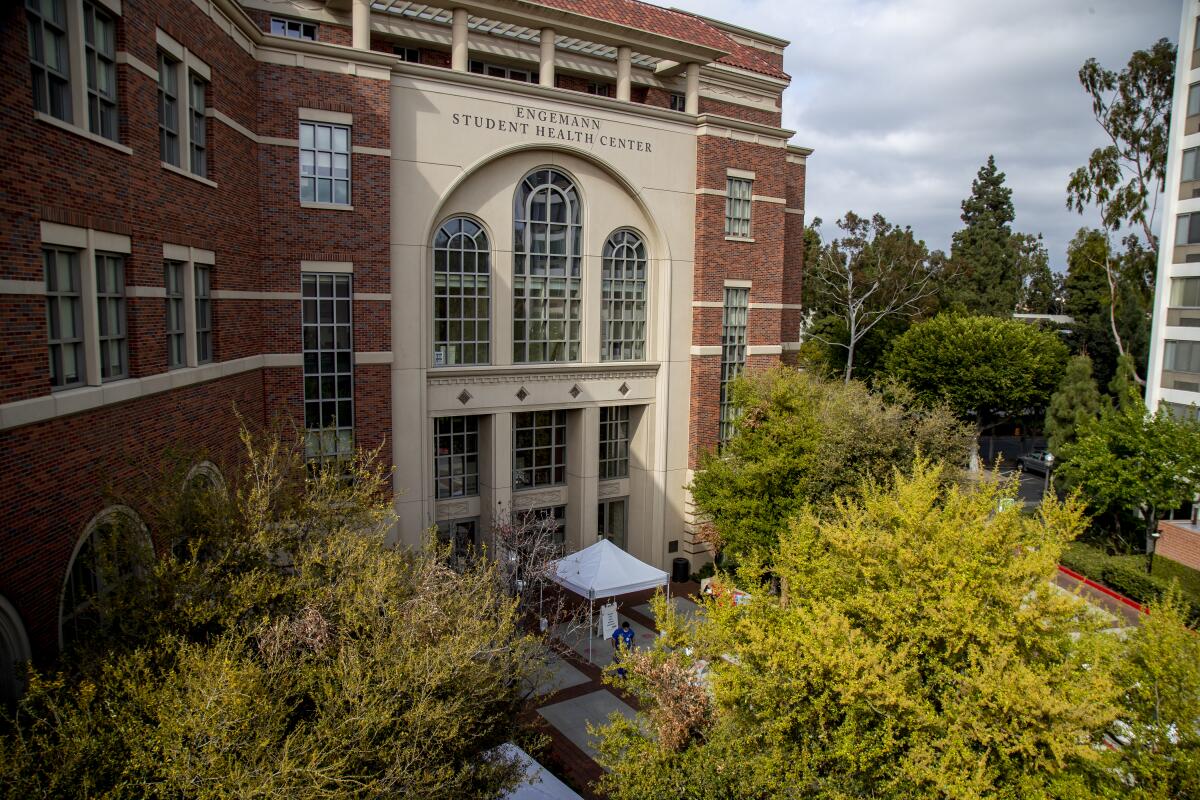
“There is nothing critical that is not going to happen at USC because of this,” Caruso said. “The student experience and quality of education is not going to be affected.”
The 710 women who were part of Thursday’s settlement will receive an average payment of $1.2 million, although the exact distribution of the money was expected to vary by individual allegations and ultimately be determined by an arbitrator in coming months.
USC alumna Nicole Haynes, 46, was one of the women. She said Tyndall conducted an unnecessary pelvic exam on her in 1995 after she sought treatment for food poisoning. The incident left her feeling violated, she said, and she applauded the settlement as a way of holding the university accountable.
“I’m a diehard Trojan, and I’ve been drilling it into my daughters’ head too, but I didn’t feel comfortable sending her there after this,” Haynes said. “Pay a billion dollars and get your act together. All the other universities, if you don’t want to pay a billion dollars, get your acts together too.”
None of the women in the final settlement entered into confidentiality agreements with USC or Tyndall, according to Mike Arias, who was also co-lead counsel for the former patients suing the university.
“When there is confidentiality, the conversation ends, and this is not a situation where the conversation should end,” Arias said. “A lot of women wanted to talk about what happened so this can not happen again.”
The university’s handling of Tyndall sparked outrage on campus and led to the ouster of President C.L. Max Nikias. Though he issued multiple apologies, Nikias was adamant that he only learned of allegations against the gynecologist in 2017, long after Tyndall’s departure.
During the last few years of litigation, scores of USC officials sat for depositions, including Caruso, former provost Michael Quick, clinic nurses and medical staff. Fifteen former patients answered questions under oath as well. Attorneys attempted to question Tyndall about his behavior, but he invoked his Fifth Amendment right against self-incrimination.
The university hired at least three law firms to defend lawsuits in state and federal court, and USC’s legion of lawyers routinely opposed releasing sensitive internal files, including emails among trustees, separation agreements with former administrators and correspondence with its crisis communications firm. The cost of USC’s legal defense is separate from the settlements and ran into the tens of millions of dollars, according to the university’s general counsel.
Lawyers for Tyndall patients planned to grill Nikias under oath this winter, but the deposition appeared to have been postponed, and in the end he was not required to sit for questions.
Nikias remains a faculty member and a nonvoting trustee. He has a campus office as president emeritus.
Asked if the university was reexamining his status in light of the settlement, Caruso said the terms of Nikias’ original contract limited what USC could do.
“I think this is a time where Max really has to reflect on what’s best for the university, what’s best for the students, and make a decision himself,” Caruso said. “I think there’s clarity to the answer to that, but I think that’s for him to answer.”
Thursday’s state court settlement comes as former patients who joined the federal class action are receiving notice of their individual payouts. In that suit, USC agreed to pay $2,500 to every patient who saw Tyndall, regardless of whether they accused him of misconduct.
Patients were eligible to receive payments of up to $250,000 after sitting for interviews to describe Tyndall’s conduct and impact on their lives, although the average payout among this group of patients was $96,330, according to court documents filed this week.
In announcing the settlement, university officials noted reforms instituted following Tyndall’s tenure. The student health center is now run by Keck Medicine, the university’s medical school and healthcare system. The clinic where Tyndall practiced employs more female gynecologists and the rape crisis center, the Relationship and Sexual Violence Prevention Program, which fielded the nurse’s complaint against the doctor, has added 10 full-time staffers.
More to Read
Start your day right
Sign up for Essential California for news, features and recommendations from the L.A. Times and beyond in your inbox six days a week.
You may occasionally receive promotional content from the Los Angeles Times.
